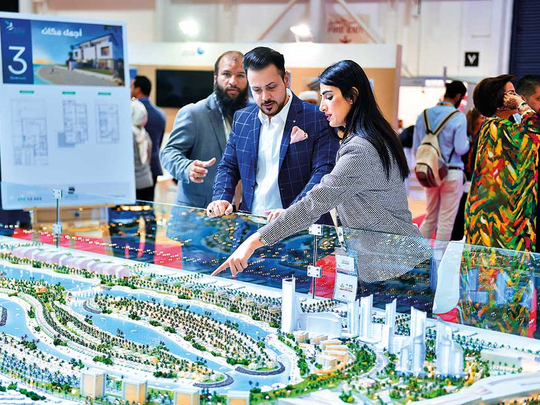UAE’s mid-income investors have quite a few options, whether IPOs or property
21 January 2022 – Gulf News – www.gulfnews.com
Upcoming stock listings could see a lot of interest, but check out mid-market homes too.

Net household wealth, which has been getting progressively unequal throughout the world, reflects itself not only in the real estate markets, but also in the types of assets people choose to hold as they climb up the wealth ladder.
In Dubai, as is true for the rest of the world’s housing markets, there has been a surge in the prices of real estate assets at the upper end of the spectrum, as wealth has become more concentrated. This is why at the top 1 per cent of the income and wealth strata, the distribution of wealth tends to be scattered across gated communities such as Emirates Hills, Dubai Hills, The Palm and Jumeirah Bay.
Developers have responded to this by essentially throwing gas onto the fire – by increasing the amount of housing stock available at the upper echelon, resulting in greater choice, but also greater lead times for sales to close. At the middle end, as the economy continues to adjust to the new disruptive technologies, prices have moved up more modestly, widening the gap in price per square foot.
This was the playbook in the first housing boom of 2002-08. The second boom sparked the trend of mid-income housing, which recalibrated the efforts of developers towards building suburban communities. Post-Covid, the price cycle has reverted to blue-ribbon communities with headlines trumping one record-breaking villa price deal after the next. Although advocates for mid-income housing have always suggested that this trend is unsustainable, they have always been unable to articulate the reasons why.
A group fixated on property
In Dubai, surveys conducted amongst private banks, the distribution of assets held at the upper end have skewed towards private equity and capital markets, whereas those at the bottom 50 per cent of the distribution chain, the preponderance of wealth has been focused on real estate (the house that the family owns). Recognizing this has been the prime reason why Dubai has moved rapidly towards increasing access to the capital markets, and easing up on the requirements for listing private sector companies, alongside reforms that have made it easier to own private equity assets.
The upcoming road shows for DEWA and Salik signal a new era for investing, especially for mid-income households in blue-chip assets that form the backbone of the economy, providing annuity-like income streams that will buttress cashflows and enhance diversification of assets. This year, there promises to be a slew of private sector offerings as well, which despite their higher propensity of risk, signal opportunities to capitalize on current low valuations, in contrast to the rather absurd multiples experienced in Western capital markets.
The pandemic affected valuations – and therefore household wealth across the board – but the subsequent surge was focused at the top end of the real estate market and other speculative assets signaling a higher propensity for risk taking. It is this propensity for risk-taking that is now being harnessed by Dubai through the capital markets and promises to herald in a new era of wealth diversification as the economy gathers steam.
A levelling of investment fields
What does this imply for prices in the real estate markers? Again, a look at more developed markets offers a clue. Where there have been more opportunities for investment, through ease of access and low barriers by way of capital entry points, the wealth distribution has been more even, as in the case of the Nordic countries.
Even in America, barring New York and Los Angeles, mid-income housing (whilst having lagged the meteoric price rise of luxury developments in the first-half of 2021), has rapidly caught up. In the meantime, sales of luxury developments in New York has started to stall again, as speculative capital starts to exit given the imminent onset of higher interest rates.
The recovery from the Great Recession saw the bottom 50 per cent of the population gain their wealth at the fastest level since the Depression of 1929 as equity assets struggled. Since the onset of the pandemic the gap has widened again.
In Dubai, the access to capital markets is the new spigot for wealth creation, allowing the ability to service the debt for the purchase of the house. As history suggests, this level playing platform paves the way for further increases in real estate values at the mid-end.


